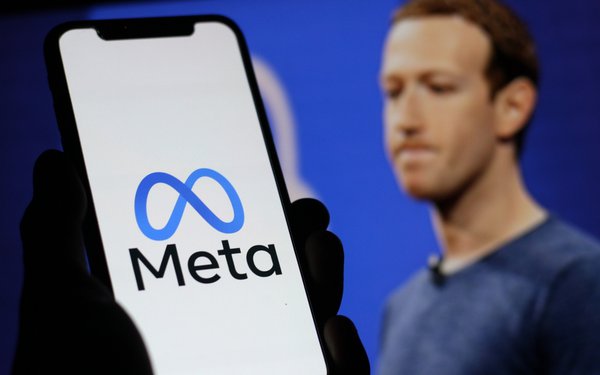
Despite losing billions in its Reality Labs division, Meta
surpassed market expectations this quarter -- reporting record revenue growth and solid advertising metrics compared to the same period last year.
In Q3, Meta grew its revenue by 19%
year-over-year to $40.59 billion -- its most impressive increase yet -- according to the company's earnings statement. The uptick in revenue can be linked to the tech giant showing people more ads in
its apps.
Ad impressions delivered across the company's family of apps increased by 7% year-over-year, with the average price per ad increasing 11% year-over-year, signaling healthy demand
among marketers trying to reach their target audience.
The report shows e-commerce as the most active advertiser vertical, followed by healthcare and entertainment and media.
One major
takeaway from the earnings report is Meta's investment in generative AI. According to Meta CEO Mark Zuckerberg’s call with investors, over a million advertisers are using Advantage+ – a
suite of ad tools that continued to grow over the period with the introduction of image and text generators -- to create more than 15 million ads in the last month.
advertisement
advertisement
“We estimate that
businesses using Image Generation are seeing a 7% increase in conversions,” said Zuckerberg, adding that enhanced behavioral understanding could help marketers optimize their ad delivery and
reduce overall costs as well.
This, in theory, could justify the more expensive ad prices, which may drop if more advertisers begin utilizing Advantage+.
In addition, Meta CFO Susan Li
told investors that Meta is running tests to find the most optimal time and place to show ads within a single user session -- a move the company hopes will drive revenue and conversion growth without
increasing the number of ads.
Meta is also studying users' behavior before and after they view an ad. "Previously, our ad system could only aggregate those actions together without
mapping the sequences,” Li said. “This new approach allows our systems to better anticipate how audiences will respond to specific ads.”
Beyond Meta's ad business, the
company's total costs and expenses increased substantially -- growing 14% year-over-year to $23.24 billion.
Ironically, the company's investment in AI, as well as virtual reality (VR) is
responsible for the majority of its increasing costs.
“We expect full-year 2024 total expenses to be in the range of $96-98 billion, updated from our prior range of $96-99
billion,” the company reported, stating that it expects its operating losses for its Reality Labs division to “increase meaningfully year-over-year” due to ongoing product
development efforts.
Overall, Meta anticipates that its full-year 2024 capital expenditures will be in the range of $38-40 billion.
The company may also impact future earnings through
the recent development of a Meta search engine, which has been designed to
compete directly with Google and Microsoft's Bing.